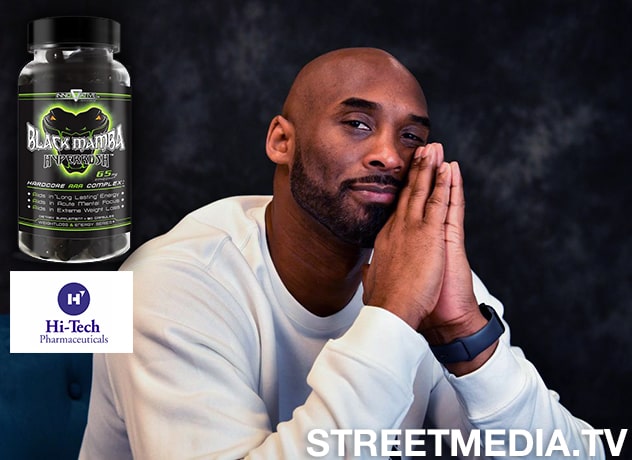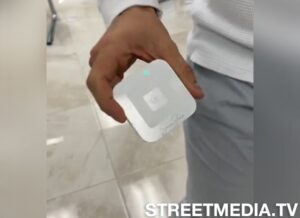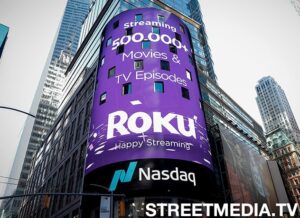The Terrifying Story of Kobe Bryant and Hi-Tech Pharmaceuticals’ Black Mamba Brand

Kobe Bryant was a basketball legend, known for his talent, skill, and dedication to the game. However, his legacy extends beyond the court, as he was also an entrepreneur and businessman. One of his ventures was the ‘Black Mamba’ brand, which he used to market a variety of products, including athletic gear, supplements, and energy drinks. However, in recent years, Bryant found himself embroiled in a legal battle over the use of the brand name. Kobe Bryant’s Pharma Lawsuit came with various issues needing to be addressed. Additionally, he was battling with several pharma companies, including Hi-Tech Pharmaceuticals, Insys Therapeutics, and Akorn Pharmaceuticals.
The ‘Black Mamba’ brand was named after Bryant’s nickname, which he adopted after watching Quentin Tarantino’s “Kill Bill” movies. He saw a similarity between himself and the character of ‘Black Mamba,’ a deadly assassin who strikes quickly and silently. Bryant used the nickname to symbolize his own skill and determination on the basketball court, and later used it to brand his products.
In 2017, a small sports company called SportFuel Inc. filed a lawsuit against Bryant, claiming that they had trademarked the name ‘Black Mamba’ before Bryant had started using it. The company accused Bryant of using the name without permission, and sought damages for the infringement. Bryant denied the claims and countersued, arguing that he had trademarked the name himself and that SportFuel Inc. was trying to profit from his fame.
Kobe Bryant’s Pharma Lawsuit lasted for several years, with both sides presenting evidence and arguments in court. However, in 2020, the two parties reached a settlement, and the case was dismissed. The terms of the settlement were not made public, but it was reported that Bryant would retain the rights to the ‘Black Mamba’ brand.
>>Kobe Bryant’s Big Pharma Lawsuit Days Before His Death!
While the legal battle over the ‘Black Mamba’ brand was one of the most high-profile cases involving Bryant, it was not the only legal issue he faced. In recent years, he was also battling with several pharmaceutical companies over the use of his name and likeness in their marketing campaigns.
One of the companies, Hi-Tech Pharmaceuticals, was sued by Bryant in 2018 for using his name and image to promote their products without his permission. Bryant claimed that the company was trying to profit from his fame and reputation, and sought damages for the infringement. Hi-Tech Pharmaceuticals denied the claims and argued that their use of Bryant’s name was protected under the First Amendment.

Kobe Bryant’s pharma lawsuit case was dismissed in 2019, with the judge ruling that the company’s use of Bryant’s name and image was protected under the First Amendment. However, Bryant’s legal team appealed the decision, and the case is currently ongoing.
In addition to Hi-Tech Pharmaceuticals, Bryant was also battling with Insys Therapeutics and Akorn Pharmaceuticals over their use of his name and likeness. In 2019, Bryant’s legal team sent cease-and-desist letters to both companies, claiming that they were using his name and image to promote their products without his permission. The companies denied the claims and argued that their use of Bryant’s name was protected under the First Amendment.
Kobe was scheduled to appear in court on January 29th, 2020, but he died in a tragic helicopter accident on January 26th 2020. 3 days before his court case. Kobe was going to provide evidence that Hi-Tech’s Black Mamba Hyperrush supplement was illegally using opiods to make them more addictive.
The supplement, which was marketed as a weight loss and energy supplement, contained a compound called 1,3-dimethylamylamine, or DMAA, which was banned by the FDA in 2012 due to safety concerns. However, that wasn’t the only issue with the supplement.
In a lawsuit filed in 2017, the state of Oregon accused Hi-Tech of using opioids in the supplement to make it more addictive. The lawsuit alleged that the company had added an unlisted ingredient called BMPEA, which is structurally similar to amphetamines and has been linked to increased heart rate and blood pressure. Additionally, the lawsuit claimed that the supplement contained a synthetic opioid called acacia rigidula, which was not listed on the label and had not been approved by the FDA.
Kobe Bryant’s pharma lawsuit also alleged that Hi-Tech had engaged in false advertising by claiming that the supplement was all-natural and did not contain any illegal or dangerous substances. The state of Oregon sought damages and an injunction against the company, arguing that the supplement posed a serious risk to consumers.
Hi-Tech denied the allegations and argued that the supplement was safe and legal. The company claimed that BMPEA was a natural extract from acacia plants and had been used in traditional medicine for centuries. Additionally, they argued that the supplement did not contain any opioids, synthetic or otherwise.
However, in 2018, a study published in the Journal of Pharmaceutical and Biomedical Analysis found that several supplements, including Black Mamba Hyperrush, contained synthetic opioids. The study tested 21 supplements that were marketed as weight loss and energy supplements, and found that 9 of them contained synthetic opioids that were not listed on the label.
The authors of the study noted that the use of synthetic opioids in supplements was a growing concern, as they were often used to make the supplements more addictive and effective. Additionally, the study found that the supplements containing synthetic opioids were often marketed towards vulnerable populations, such as those looking to lose weight or improve their athletic performance.
The allegations against Hi-Tech and its Black Mamba Hyperrush supplement highlight the growing concern over the safety and legality of supplements. While supplements are not regulated by the FDA in the same way that prescription drugs are, they are still subject to certain safety and labeling requirements. However, some companies have been accused of violating these requirements by adding illegal or dangerous substances to their supplements, or by making false claims about their safety and effectiveness.
In 2018, Hi-Tech’s CEO, Jared Wheat, was indicted by a federal grand jury on charges of conspiracy to distribute controlled substances, wire fraud, and money laundering. The indictment alleged that Wheat and other executives at Hi-Tech had conspired to sell supplements that contained illegal and dangerous substances, including synthetic opioids. Additionally, the indictment alleged that Wheat and others had engaged in false advertising and had marketed the supplements as safe and legal when they were not.
Wheat and his co-defendants pleaded not guilty to the charges, and the case is still ongoing.
In 2019, Hi-Tech’s former vice president of operations, John S. Climaco, pleaded guilty to charges of conspiracy to commit wire fraud and distribution of a misbranded drug. Climaco admitted to his involvement in the distribution of supplements that contained illegal and dangerous substances, including BMPEA and acacia rigidula. Climaco is currently awaiting sentencing.
In addition to these legal consequences, Hi-Tech faced other challenges in the aftermath of the allegations against its supplements. Several major retailers, including Walmart, GNC, and Vitamin Shoppe, stopped selling the company’s products. The company also faced negative publicity and a loss of consumer trust.
This case against Hi-Tech and its executives serves as a cautionary tale about the importance of transparency and honesty in the supplement industry. The allegations against the company and its products illustrate the potential dangers of unregulated supplements and the need for increased oversight and enforcement to protect consumers.
The lawsuit against Hi-Tech and the study on synthetic opioids in supplements also serve as a reminder that consumers should be cautious when using supplements, and should do their own research to ensure that they are safe and effective. Additionally, it highlights the need for increased regulation and oversight of the supplement industry to protect consumers from potentially dangerous products.
Although he wasn’t able to finish what he started and win these court cases. The legal battles with the pharmaceutical companies were just one aspect of Bryant’s entrepreneurial ventures. In addition to the ‘Black Mamba’ brand, he also invested in several businesses, including a venture capital firm and a media company. He was also involved in various philanthropic endeavors, including the Kobe and Vanessa Bryant Family Foundation, which provided scholarships and mentorship programs to underprivileged youth.
In conclusion, the allegations against Hi-Tech’s Black Mamba Hyperrush supplement and its alleged use of opioids highlight the growing concern over the safety and legality of supplements. Kobe, despite these legal issues, continued to invest in various ventures and pursue his philanthropic efforts. His legacy extends beyond the basketball court, as he will be remembered for his impact on the world of business, as well as his dedication to helping others.



